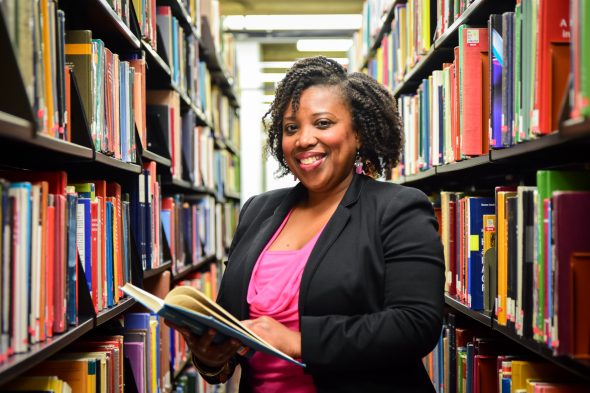Excellence in Teaching: Marisha Humphries
Each year, UIC honors some of its most dedicated and outstanding teachers with the Award for Excellence in Teaching. The winners, who receive a $5,000 salary increase, are selected by past recipients of the award from nominations made by departments and colleges.
Years at UIC: 12
What does it mean to win the Excellence in Teaching Award?
It is such an honor to win the Excellence in Teaching Award. I am proud of the work I do in and outside of the classroom with my students and it is humbling to be recognized for it.
What do you teach?
I teach both undergraduate and graduate developmental and psychology courses in Educational Psychology. In terms of undergraduate courses, I teach EPSY 100 Introduction to Human Development and Learning, EPSY 255 Child Development in Contemporary Society, and in the spring I will teach a new course EPSY 320 Understanding Children’s Social Development & Socialization in an Urban Context. I teach a cross-listed graduate and upper undergraduate level course EPSY 420 Social Development of Urban Children. The other graduate course I teach is a doctoral level special topics course in Social Emotional Competence and Learning in Urban Schools (EPSY 594).
How do you engage students in your courses?
I try to link course material to students’ lived experiences and what they hope to do in the future. This gives students the ability to conceptualize how theoretical and empirical knowledge can be applied to everyday experiences as opposed to learning knowledge that only seems relevant in the academy.
What do you enjoy most about teaching at UIC?
I love that students at UIC are interested in taking what they are learning in class and use to make a difference in their communities. Students are interested in the real-world application of course material. I’ve also learned a great deal from my students. My students have definitely helped me become a better educator and researcher.
What are your research interests?
My research focuses on the impact of social emotional competence in facilitating a students’ academic engagement and achievement. Specifically, my research examines children’s emotional and social competence, and the ways in which schools can support this development. This work extends into higher education. I engage with faculty across campus to inform their teaching practices as it relates to the connection among learning, social emotional competence, and diversity.
What is your advice to students who just graduated Dec. 15?
Remember that learning does not end when you get your diploma. Commit yourself to be a lifelong learner who engages in diverse experiences. This will not only inform and strengthen the work you will do, but it will also deepen your development as an individual.

